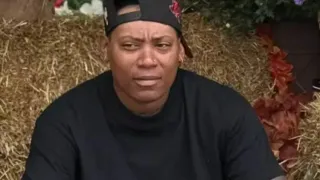March 19, 2015
Iggy Azalea on Social Media, Tour, Nw album, Britney Spears
Jason St. Amand READ TIME: 2 MIN.
Missing Iggy Azalea on social media? You may have to get used to it.
The rapper, who has spent the last week off of Twitter and Instagram, said she may not return to the popular networks.
"Yeah, so nice not to be on social media so I'm kind of going to continue that until, maybe forever," she said in an interview with The Associated Press early Thursday.
Azalea's management has been posting on her social media accounts since she announced she was taking a break. In her last Instagram post, she wrote about paparazzo invading her privacy by taking photos of her outside her home.
"I think it's disgusting," Azalea said backstage at the Samsung Milk Music Lounge during South by Southwest in Austin, Texas, where she was the headline act. "I don't think it's nice to stick your camera through somebody's fence and hedge and take a picture of them in their yard and think that's OK at all."
Though the "Fancy" performer is off social media, she's keeping busy with new music and her upcoming tour, which was rescheduled to happen in the fall instead of the spring due to "production delays."
"The whole point was to make no compromises, but nothing's changed in terms of my creative vision," she said. "It's very kind of like Patrick Nagel, powerful 80s androgynous women vibe."
Azalea said she didn't want to wait until September to launch the tour, "but because the arenas are so far in advanced book, it was kind of their next slot." She said she'll take advantage of the free time by recording her sophomore album.
"I didn't anticipate having any time to completely finish it, but now that I have kind of the time," she said. "I'd love to have an album at the end of 2015."
Azalea said her first single will be the Britney Spears-assisted "Pretty Girls."
"I love Britney. She's super sweet and I just want to hang out with her all the time," she said. "I saw her at Toys "R'' Us randomly; she lives right down the street from me. ...Since I've met her now we keep bumping into each other in the street."
"I don't know if I needed re-inspiring, but it's just made me extra excited to want to put out new music," she added about the song.
Azalea's new album will be the follow-up to last year's "The New Classic," which was nominated for best rap album at this year's Grammy Awards and launched the hits, "Fancy" and "Black Widow."
"My first album got pushed back so many times and it was really, probably like two years of recording on and off, not the entire time, but it was a real struggle and I think that was something that really like reflected in my album a lot - I talk about trying to make it, trying to breakthrough," she said. "So my second album, now I don't have this problem. So I hope it's a little bit more up-tempo and just really fun. I just want to have something so summer and so girly, so loud and obnoxious and braggadocios."






